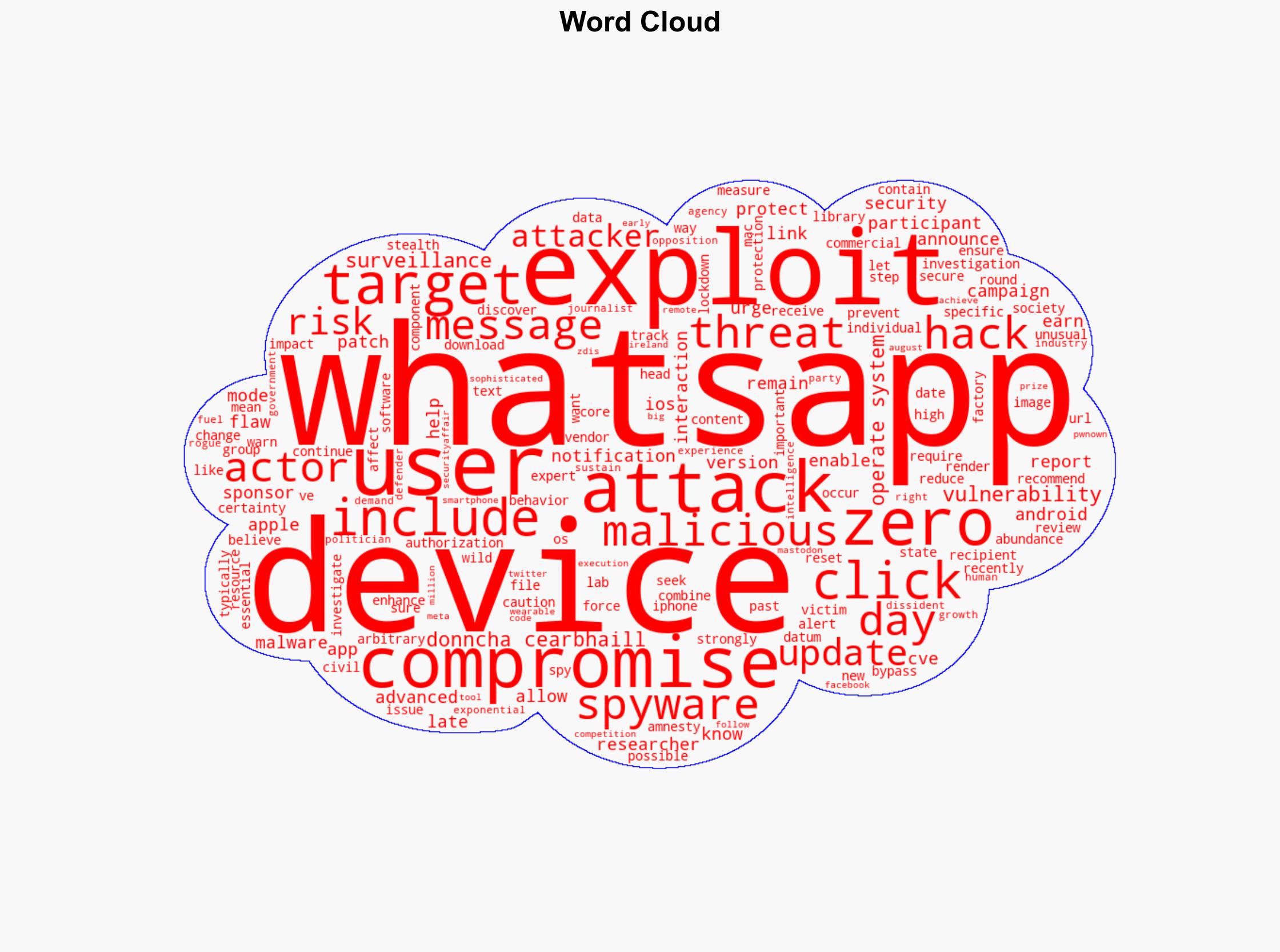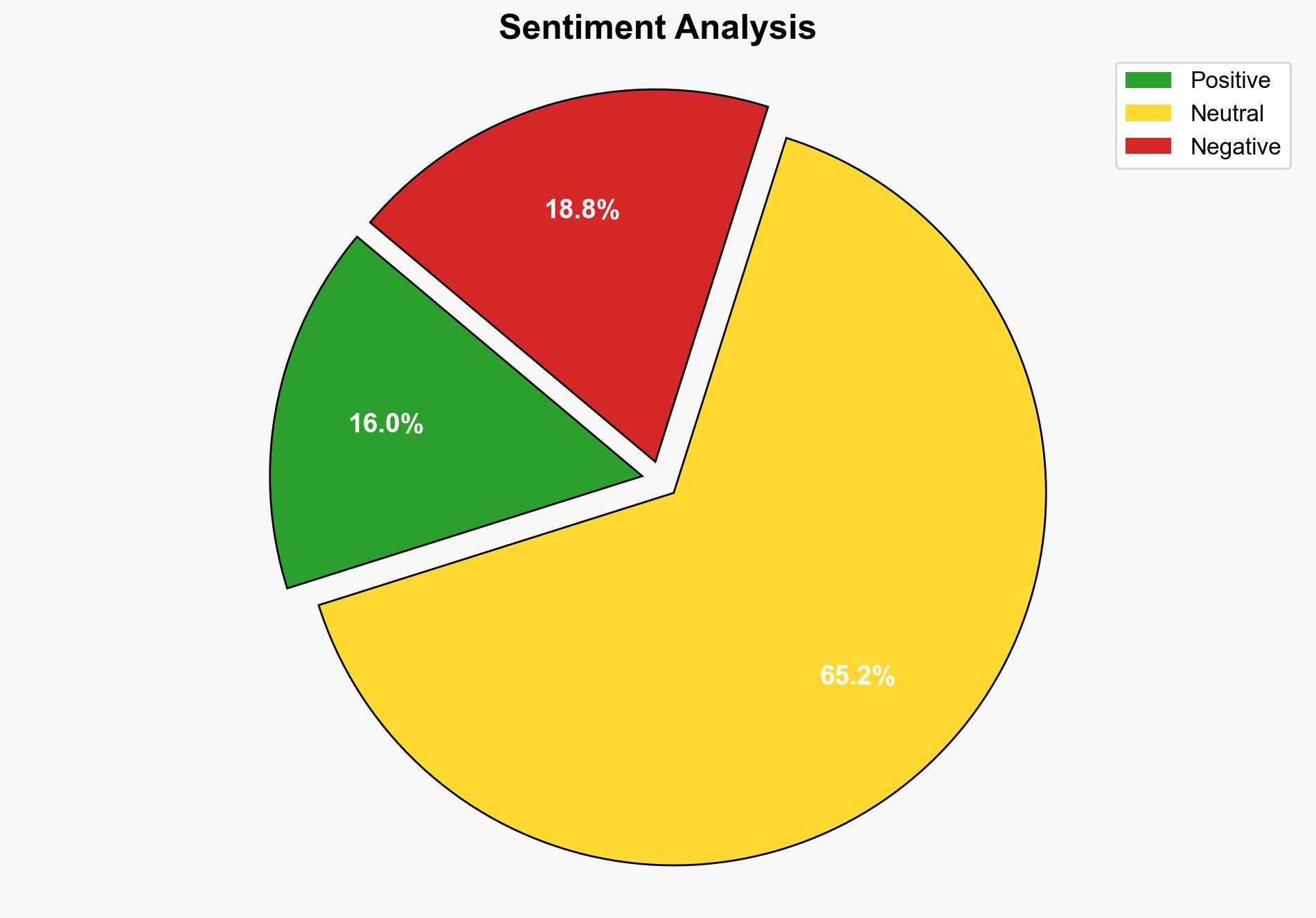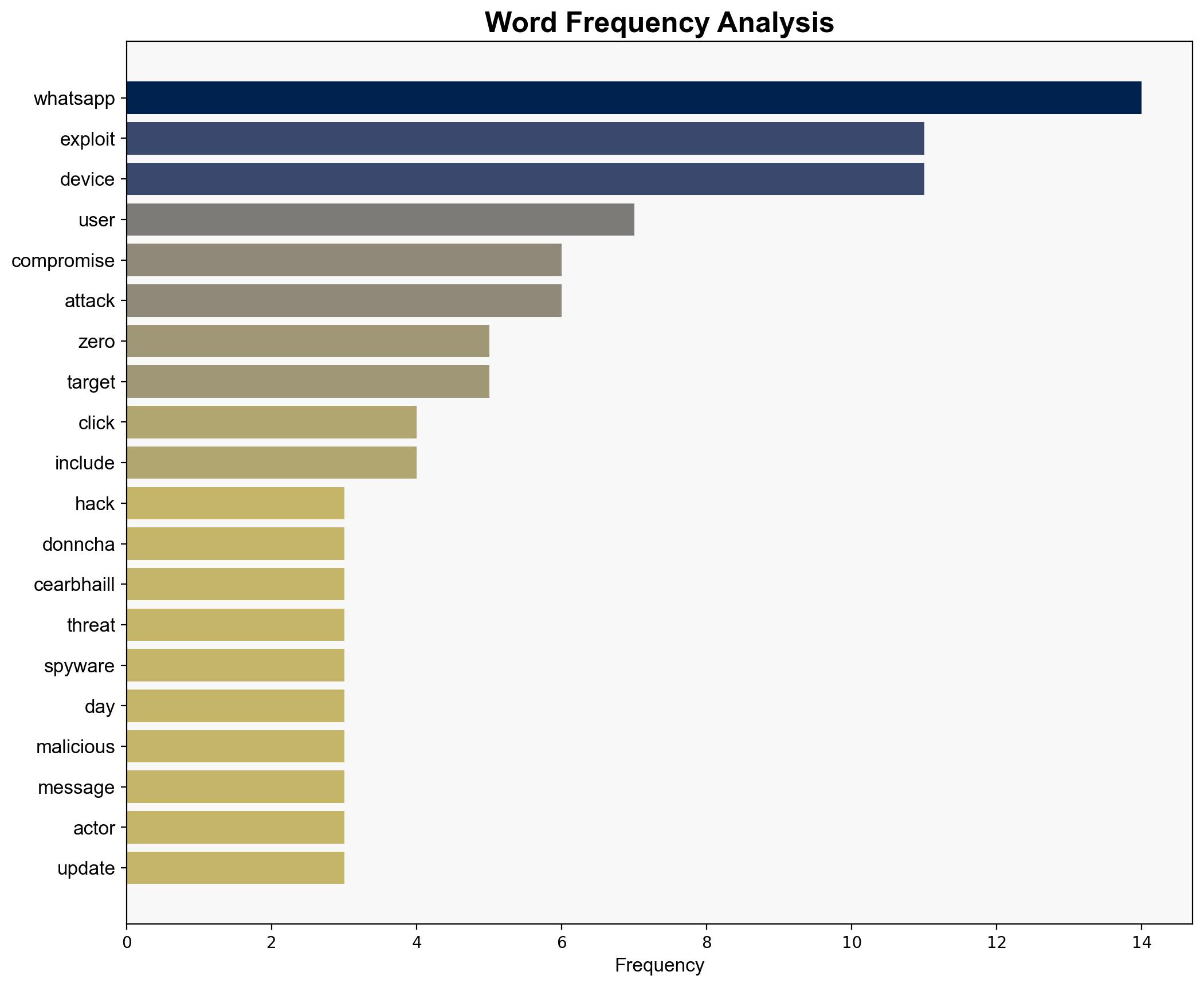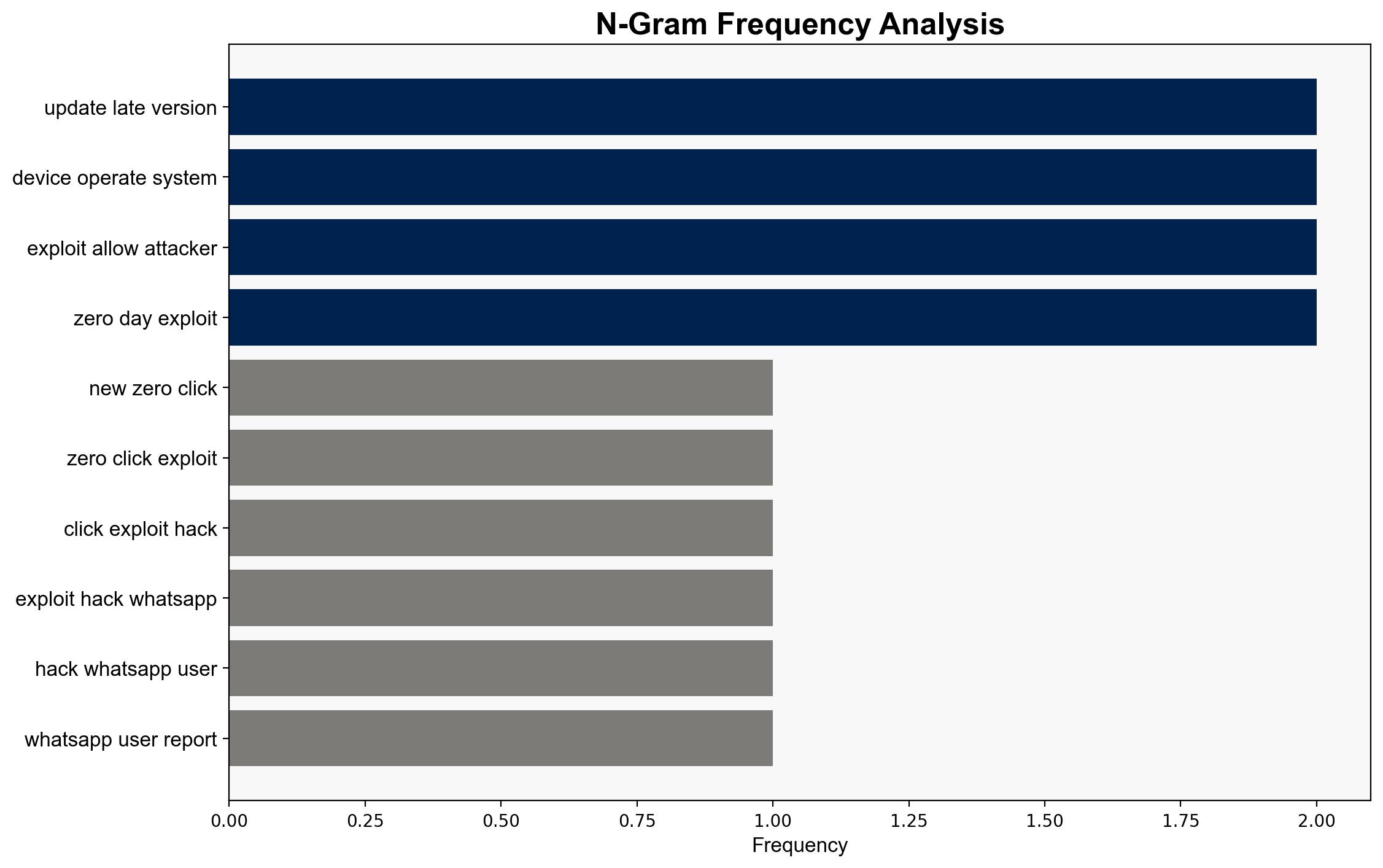New zero-click exploit allegedly used to hack WhatsApp users – Securityaffairs.com
Published on: 2025-08-29
Intelligence Report: New zero-click exploit allegedly used to hack WhatsApp users – Securityaffairs.com
1. BLUF (Bottom Line Up Front)
The most supported hypothesis is that a state-sponsored group is using a zero-click exploit to target high-risk individuals such as journalists and human rights defenders. Confidence in this hypothesis is moderate due to the nature of the exploit and the typical targets of such campaigns. It is recommended to enhance cybersecurity measures, particularly for high-risk user groups, and to maintain updated systems and applications to mitigate potential threats.
2. Competing Hypotheses
Hypothesis 1: A state-sponsored group is utilizing the zero-click exploit to target high-risk individuals for surveillance purposes. This is supported by the sophisticated nature of the exploit and the typical targets mentioned, such as journalists and human rights defenders.
Hypothesis 2: A commercial spyware vendor is exploiting the vulnerability for financial gain by selling the exploit to various clients, including rogue governments and private entities. This is supported by the mention of the surveillance industry’s growth and the financial incentives highlighted by hacking competitions.
3. Key Assumptions and Red Flags
– Assumption: The exploit is primarily used by state-sponsored actors, based on the typical targets and the sophistication of the attack.
– Red Flag: Lack of specific evidence linking the exploit to a particular group or actor.
– Blind Spot: Potential involvement of non-state actors or smaller, less sophisticated groups exploiting the vulnerability for different purposes.
4. Implications and Strategic Risks
The use of zero-click exploits poses significant risks to individual privacy and national security, particularly if leveraged by state-sponsored actors. The potential for widespread surveillance and data breaches could lead to geopolitical tensions, especially if linked to specific governments. Economically, the growth of the surveillance industry may incentivize further development and sale of such exploits, increasing the overall threat landscape.
5. Recommendations and Outlook
- Enhance cybersecurity protocols for high-risk groups, including journalists and human rights defenders, by promoting the use of updated software and security features like iOS lockdown mode and Android advanced protection mode.
- Conduct regular security audits and threat assessments to identify and mitigate vulnerabilities.
- Scenario Projections:
- Best Case: Rapid patch deployment and user compliance significantly reduce the exploit’s effectiveness.
- Worst Case: Exploit spreads to additional platforms, leading to widespread data breaches and geopolitical tensions.
- Most Likely: Continued targeted attacks on high-risk individuals, with gradual mitigation as patches are applied.
6. Key Individuals and Entities
– Donncha Cearbhaill
– Amnesty International researchers
– Apple (as the provider of the patched vulnerability)
– Meta (sponsor of hacking competition)
7. Thematic Tags
national security threats, cybersecurity, counter-terrorism, regional focus




